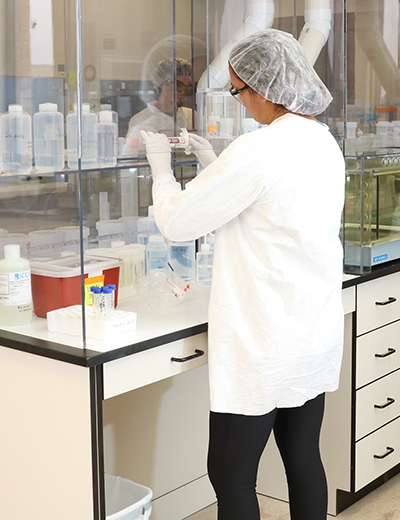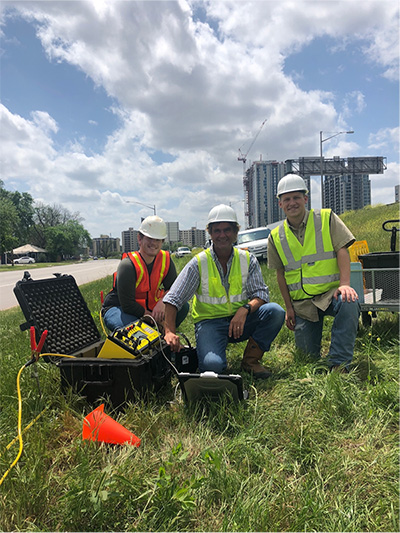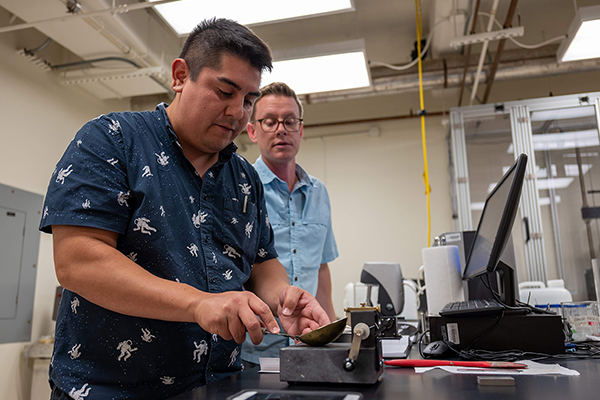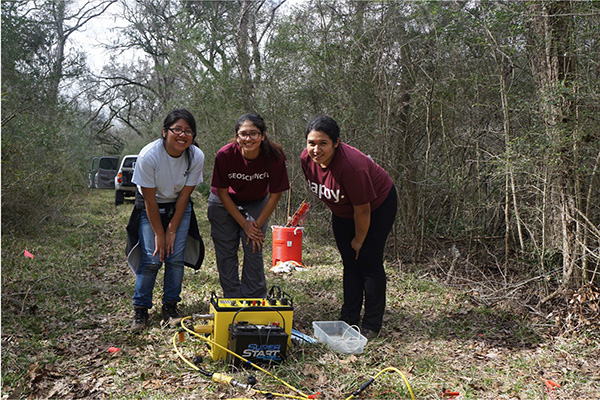New Environmental And Engineering Geology Certificate Now Available
The Department of Geology and Geophysics is expanding educational opportunities for students, providing new certificate program.
Jun 29, 2022
The Department of Geology and Geophysics is adding a new certificate program in Environmental and Engineering Geology to provide undergraduate students with a solid foundation to understand the geological processes that shape and impact the environment, resources, and land use. The certificate will be available to geology and geophysics undergraduates in Fall 2022.
Environmental program coordinator Dr. Hongbin Zhan said that “as challenges, technologies, and best practices continue to evolve in earth sciences, the employment prospects for geologists and geophysicists in the next decade are very strong. The fastest growing sector is expected to remain in environmental geosciences, including engineering and environmental consulting agencies, non-profit environmental companies, river authority, groundwater conservation districts, subsidence districts, federal, state, and local regulatory agencies.”



The Department of Geology and Geophysics has harnessed the need for education in the environmental sector by creating a certificate program, available in the 2022-23 catalog. This certificate for undergraduates provides valuable knowledge, skills, and credentialing for individuals operating in the environmental arena.
“Because jobs in this sector involve the health and well-being of the public, employees generally need to be licensed by a state agency,” Zhan said. “The EEG certificate is designed to give students a broad background in soils, landscapes, natural hazards, and groundwater resources, that will help prepare them for licensure as a Professional Geologist.”
Students pursuing undergraduate degrees in the Department of Geology and Geophysics can complete the Environmental and Engineering Geology Certificate. Through the required and elective courses, students gain hands-on experience with laboratory and field methods in both environmental and engineering geology.
“The new generations of environmental geoscientists need to have an in-depth understanding of the driving forces for environmental challenges, such as groundwater contamination; geological hazards such as landslides, land subsidence, and flooding; and knowledge of issues such as carbon capture and storage, hydraulic fracking, aquifer thermal energy storage, etc.,” Zhan said.


Students in the certificate program need to complete four courses (9 hours of required coursework and 3 elective hours) and a one-hour seminar. The required courses include Engineering Geology, Hydrogeology, and Geochemistry.
“These three required courses provide a foundation in groundwater dynamics and geochemistry of near-surface systems,” he said. “They also provide the fundamentals of soil, rock and fluid mechanics and basic engineering practices as applied to the analysis of the geological environment. The electives allow students to follow up with a course in the specialty that interests them.”
Electives can be chosen from Global Biogeochemical Cycles, Field Methods in Geophysics, Geological Data Analysis, Environmental Hydrogeology, or Environmental Geology. Skills gained will prepare graduates for roles in the engineering and environmental consulting agencies, and state and local governments.
The certificate is designed to fit within elective slots in the Geology and Geophysics curricula. Undergraduate students majoring in geology or geophysics can enroll at any time, but it would be best to begin planning a schedule around these courses early in the junior year. Interested students can contact the Program Director Dr. Hongbin Zhan at zhan@tamu.edu.
By Michelle Chrpa
